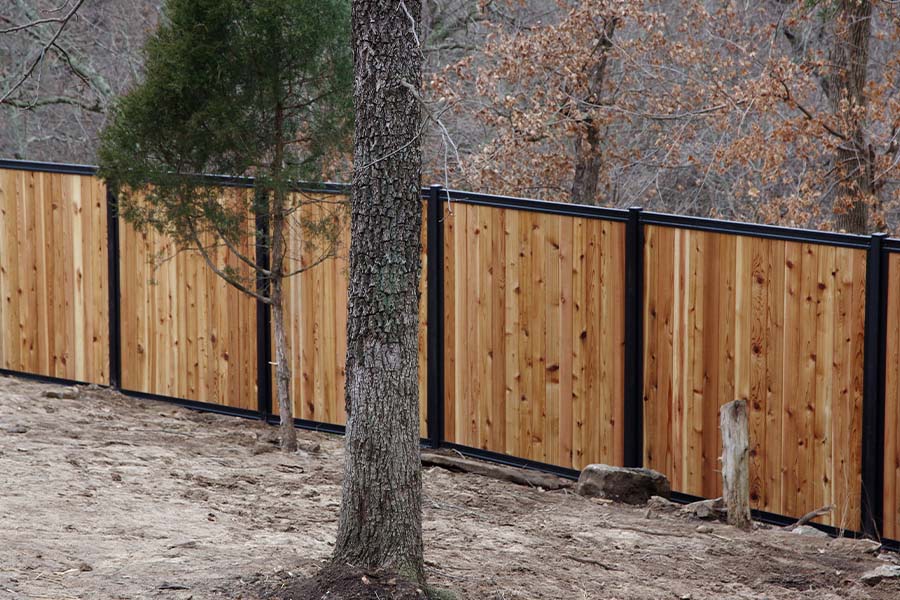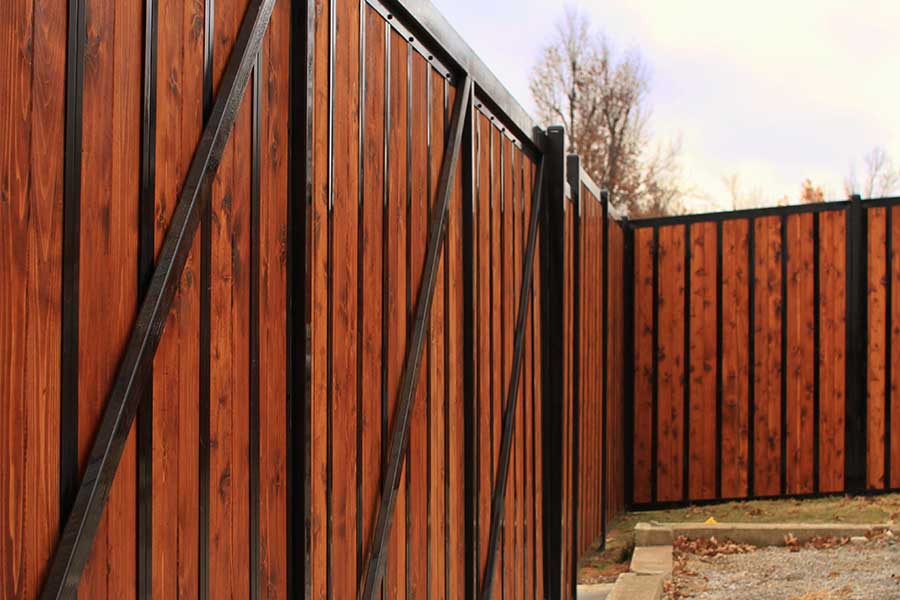All Categories
Featured
When you choose to set up a fence around your domestic property, it's necessary to understand the authorization requirements certain to your area. While setting up a fencing can feel like a straightforward home improvement job, neighborhood laws and policies should be followed to make certain the installation is legal and certified. Falling short to secure the correct authorizations could lead to fines or perhaps require you to get rid of the fencing. Right here's a detailed take a look at the authorizations you may need for fence installment.
Why Do You Required a Permit for Fencing Installment? A fencing is greater than just an obstacle between residential or commercial properties-- it can affect safety and security, home worth, appearances, and also ecological problems. City governments require authorizations to make certain that fencings fulfill specific criteria and do not trigger problems for energies, neighbors, or the neighborhood all at once. Licenses additionally guarantee that the setup abides by zoning regulations, developing codes, and safety guidelines.
![]()
Sorts Of Licenses You Might Require. Building License. A structure permit is among the most typical authorizations required for fencing installment. This permit makes sure that the fence meets regional structure codes. If you're building a fencing over a certain height (typically over 6 feet), you'll likely need a structure permit. The neighborhood structure division will generally assess the website and review strategies to ensure the structure is stable and does not obstruct public spaces or create risks.
Zoning Authorization. Zoning laws regulate just how land is utilized in a certain area, and they consist of laws regarding fencings. A zoning permit ensures your fencing abides with elevation, area, and problem regulations. For instance, fencings might require to be held up a certain distance from walkways, roadways, or building lines to stop obstruction or interference with utilities. In some cases, zoning legislations can also specify which materials are allowed.
HOA Approval. If your home belongs to a home owners organization (HOA), you might need to seek authorization before setting up a fencing. HOAs commonly have guidelines that govern the looks and framework of fencings to guarantee they agree with the neighborhood. You might require to send your prepare for authorization, and the HOA may restrict fencing product, style, or elevation.
Specialty Permits. In some locations, there may be extra licenses needed for details situations. If your fencing is near a protected ecological location or located in a flooding area, you might need to get specialized licenses related to environmental effect. In a similar way, if the fencing is in a location with underground utilities, you may require to obtain clearance to prevent harmful pipelines or cords.
![]()
Easement or Energy Company Consent. Prior to mounting a fence, it's crucial to examine whether the residential property consists of an easement, such as an utility easement, which could influence where you can place your fence. Easements are locations of land marked for private or public utilities, and you may require approval from the energy business or other authority to develop within this location.
How to Find Out What Allows You Required. To make certain that you're following all the required regulations, below's just how you can identify the particular permits needed for your fencing installment:
![]()
Visit Your Neighborhood Federal Government Office: The primary step is to contact your regional building or zoning department. Numerous cities and areas have guidelines offered online that specify what sorts of licenses are needed for fence installment. If not, visiting the office or calling personally can assist clear up the procedure. Examine Your City's Site: Many communities supply details concerning fencing installments and the licenses needed via their main internet sites. Some websites even permit you to submit applications online. Seek Advice From a Fence Setup Professional: If you're uncertain regarding local guidelines, a specialist fence contractor can aid. They recognize with the permitting procedure and can guide you through the steps. The Effects of Not Getting an Authorization. Failing to protect the necessary permits before installing a fencing can lead to substantial repercussions. For instance, you may be fined or called for to remove the fence totally. In addition, if you determine to sell your property in the future, the lack of a permit can prevent possible buyers, as they might see it as an indication that the home is not compliant with regional legislations. Guaranteeing that you have the appropriate authorizations will certainly conserve you time, cash, and migraines in the future.
Verdict. Installing a fence around your home can include both security and curb charm, however it's crucial to guarantee you're adhering to the lawful action in the process. Looking into the specific permit needs for your location, consisting of building licenses, zoning guidelines, HOA authorization, and utility consents, will assist guarantee your fencing installment goes efficiently. Putting in the time to comprehend these demands now can save you from expensive errors and potential lawful issues down the line.
Why Do You Required a Permit for Fencing Installment? A fencing is greater than just an obstacle between residential or commercial properties-- it can affect safety and security, home worth, appearances, and also ecological problems. City governments require authorizations to make certain that fencings fulfill specific criteria and do not trigger problems for energies, neighbors, or the neighborhood all at once. Licenses additionally guarantee that the setup abides by zoning regulations, developing codes, and safety guidelines.

Sorts Of Licenses You Might Require. Building License. A structure permit is among the most typical authorizations required for fencing installment. This permit makes sure that the fence meets regional structure codes. If you're building a fencing over a certain height (typically over 6 feet), you'll likely need a structure permit. The neighborhood structure division will generally assess the website and review strategies to ensure the structure is stable and does not obstruct public spaces or create risks.
Zoning Authorization. Zoning laws regulate just how land is utilized in a certain area, and they consist of laws regarding fencings. A zoning permit ensures your fencing abides with elevation, area, and problem regulations. For instance, fencings might require to be held up a certain distance from walkways, roadways, or building lines to stop obstruction or interference with utilities. In some cases, zoning legislations can also specify which materials are allowed.
HOA Approval. If your home belongs to a home owners organization (HOA), you might need to seek authorization before setting up a fencing. HOAs commonly have guidelines that govern the looks and framework of fencings to guarantee they agree with the neighborhood. You might require to send your prepare for authorization, and the HOA may restrict fencing product, style, or elevation.
Specialty Permits. In some locations, there may be extra licenses needed for details situations. If your fencing is near a protected ecological location or located in a flooding area, you might need to get specialized licenses related to environmental effect. In a similar way, if the fencing is in a location with underground utilities, you may require to obtain clearance to prevent harmful pipelines or cords.

Easement or Energy Company Consent. Prior to mounting a fence, it's crucial to examine whether the residential property consists of an easement, such as an utility easement, which could influence where you can place your fence. Easements are locations of land marked for private or public utilities, and you may require approval from the energy business or other authority to develop within this location.
How to Find Out What Allows You Required. To make certain that you're following all the required regulations, below's just how you can identify the particular permits needed for your fencing installment:

Visit Your Neighborhood Federal Government Office: The primary step is to contact your regional building or zoning department. Numerous cities and areas have guidelines offered online that specify what sorts of licenses are needed for fence installment. If not, visiting the office or calling personally can assist clear up the procedure. Examine Your City's Site: Many communities supply details concerning fencing installments and the licenses needed via their main internet sites. Some websites even permit you to submit applications online. Seek Advice From a Fence Setup Professional: If you're uncertain regarding local guidelines, a specialist fence contractor can aid. They recognize with the permitting procedure and can guide you through the steps. The Effects of Not Getting an Authorization. Failing to protect the necessary permits before installing a fencing can lead to substantial repercussions. For instance, you may be fined or called for to remove the fence totally. In addition, if you determine to sell your property in the future, the lack of a permit can prevent possible buyers, as they might see it as an indication that the home is not compliant with regional legislations. Guaranteeing that you have the appropriate authorizations will certainly conserve you time, cash, and migraines in the future.
Verdict. Installing a fence around your home can include both security and curb charm, however it's crucial to guarantee you're adhering to the lawful action in the process. Looking into the specific permit needs for your location, consisting of building licenses, zoning guidelines, HOA authorization, and utility consents, will assist guarantee your fencing installment goes efficiently. Putting in the time to comprehend these demands now can save you from expensive errors and potential lawful issues down the line.
Latest Posts
What to Find Out About Transmission Repairs and Maintenance
Published Dec 26, 24
0 min read
Bare Bones Furniture & Mattress
Published Dec 26, 24
2 min read
Full Circle Marketing: Expert Strategies to Grow Your Business
Published Dec 26, 24
1 min read